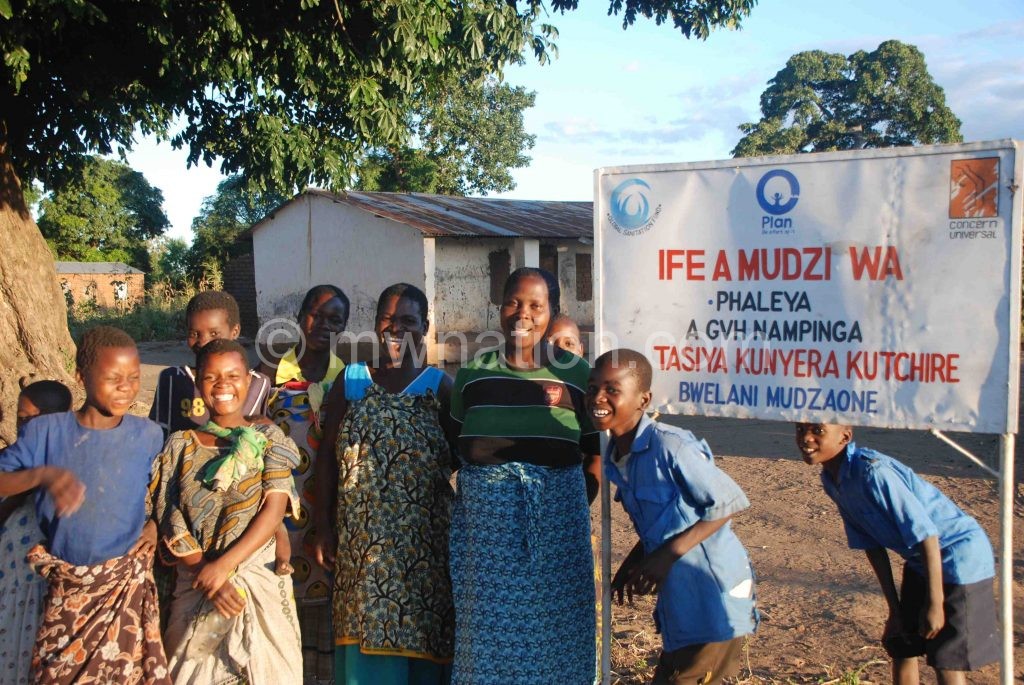Should Malawians be taught to use toilets?
The race is on. Campaigners are all over the country, shouting: stop open defecation, stop defecation, so that villages and communities are declared Open Defecation Free (ODF).
The goal of the campaign is to woo as many Malawians, especially in the rural settings, to embrace the habit of using toilets. To stop them relieving themselves in the bush, a common practice due to lack of toilets and in some communities, cultural tradition.

For example, in some communities in the Lower Shire, men and women do not defecate in the same bush, let alone a toilet. It is considered taboo.
It might look so mean and sound so funny. But some communities have a nasty tendency to relieve themselves in the bush. In cities and towns too, some people still resort to defecating and urinating under a tree.
However, with the campaign, the situation is changing.
Various non-governmental organisations (NGOs) have taken the country by storm, mobilising communities by, among other things, offering financial or material support for the construction of toilets in order raise hygiene standards.
But the move has met resistance though from some quarters. Many have questioned the idea of encouraging people to construct and use toilets 52 years after independence. They argue use of toilets should have been entrenched in Malawian society as is the case in many African countries. Why now?
Village Hygiene Organisation Project coordinator Roy Khonyongwa in an interview said it was important to teach people how to use toilets because while it was important to ensure that every member of society has access to hygienic sanitation facilities, uptake of messages was slow.
“It is very imperative that every person has access to clean sanitation facilities which they can use from time to time.
“However, over the past years it has been noted that people’s mindsets are to blame for the lack of use of sanitary facilities. You wonder that people have been trained about its importance from childhood but some still want to use the bush and other places as toilets,” he said.
Khonyongwa said it was worrying that although much investment had been put into the sanitation sector especially by NGOs partnering government, the impact on the ground was minimal.
“Probably there is need to change strategy in the way these messages are packaged. But the most worrying thing is that as a nation we are not growing.
“We failed to meet the Millennium Development Goals (MDGs). Now we have Sustainable Development Goals (SDGs). Let us see if we will improve on our record this time around,” he said.
The campaigners are now even using road side sign posts stating commitment by communities that they have done away with primitive ways of relieving themselves in undesignated places.
Traditional Authority (T/A) Chakhaza of Dowa is one of the traditional leaders to recognise that the campaign is having an impact on communities. He says his area is now open defecation free following the campaign.
But a Blantyre-based seasoned media practitioner and trainer Frank Kapesa questions the essence of such a campaign when the country was said to be making significant steps towards achieving its health goals.
“It is ridiculous that we cannot take care of ourselves as such we wait upon NGOs to tell us where to deposit our own waste. The one who generates waste is responsible for his or her waste. This smacks of some growing negligence coupled with sponsored mediocrity,” he said.
“In my view what is wrong is that, as a nation we are too patient with people who wreck our society. We are too tolerating with people who spread harm. There is no clear enforcement and sometimes the policies collide. Take the environmental act, for instance, it forbids encroachment into marginal lands yet the disaster management seems to support aid to such people when disaster occurs. In other words that is supporting the law breakers. At the same time, we are not angry enough with things that do not work,” he adds.
Despite the seemingly distaste from people like Kapesa, Senior Chief Chikumbu of Mulanje in whose area the ODF campaign is being implemented, said the campaign should continue.
“It is obvious that some of the people who do not have or use toilets do so out of sheer laziness and nothing else. It is not common to find those that do not have land to construct a latrine or plausible reasons not to use them. That is why we have introduced byelaws as part of the campaign so that those that were breaking the norms should feel the pinch,” she said.
According to Chikumbu, the ODF campaigns are registering success and should be encouraged in order to register 100 percent penetration of messages.
SDG goal number six stipulates that countries shall strive to ensure the availability and sustainable management of water and sanitation for all.
The government of Malawi committed itself to meeting the 17 goals set up by the United Nations. n





